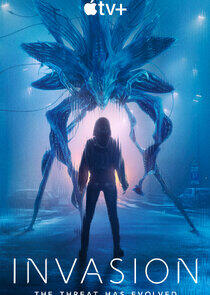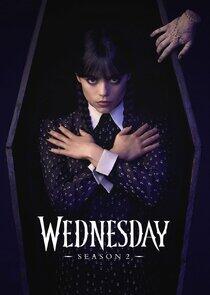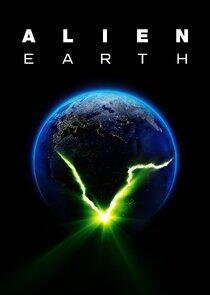Timewatch - Season 33 / Year 2016

Season 33 / Year 2016
A Timewatch Guide

Episodes

Stonehenge
Using 70 years of BBC history archive film, Professor Alice Roberts uncovers how the iconic ancient monument of Stonehenge has been interpreted, argued over and debated by some of Britain's leading historians and archaeologists. She reveals how new discoveries would discredit old theories, how astronomers and geologists became involved in the story and why, even after centuries of study, there's still no definitive answer to the mystery of Stonehenge.

The Crusades
Historian Dr. Thomas Asbridge explores the BBC's archive to reveal how television's telling of the Crusades has changed over the last 60 years. Using footage from Crusade documentaries shot during the Vietnam era, the Palestinian Crisis, the First Gulf War and the more recent War on Terror, he reveals how our interpretation of this medieval story has been influenced by modern political and social change. Thomas highlights the alternative Arabic perspectives on the Crusades, and asks whether this 1,000-year-old story really does cast its long shadow over the modern world, as so many have claimed.

Queen Elizabeth I
Vanessa Collingridge examines the life of Elizabeth Tudor, with particular interest in how documentary television and the BBC has examined her legacy and interrogated her reign. Using Timewatch and other BBC archive stretching back over 60 years, Vanessa looks at her upbringing, her conflicts with her enemies including Mary, Queen of Scots, and her greatest victory against the Spanish Armada. The programme seeks to understand how Elizabeth I created a legacy that we still live with today, and examines how that legacy has changed over the centuries.

World War Two
Professor Saul David uses the BBC archive to chart the history of the world's most destructive war, by chronicling how the story of the battle has changed. As new information has come to light, and forgotten stories are remembered, the history of World War Two evolves. The BBC has followed that evolution, and this programme examines the most important stories, and how our understanding of them has been re-defined since the war ended over 70 years ago.

Crime and Punishment
From the death penalty, to laws against homosexuality, Britain's criminal justice system has undergone momentous change in the last 70 years.
In this Timewatch guide to Crime and Punishment, presenter Gabriel Weston examines how television has played a crucial role in documenting these seismic shifts in British law and policing.
Looking back through the Timewatch back catalogue of documentaries and a host of BBC archive rarities, Gabriel discovers how historians and filmmakers have not only chronicled these profound changes in law but also managed to shape public opinion.
By highlighting miscarriages of justice, like that of the wrongful imprisonment of the Birmingham Six, or by shining a spotlight on other issues of corruption and damning flaws in police procedures, Gabriel finds that television actually became a powerful agent for change.

Women, Sex and Society
We are living through one of the greatest revolutions in history. One that has changed how we live in Britain forever, and yet many of us don't even notice it is happening. This revolution is the ongoing transformation of the rights and role of women. Historian and broadcaster Helen Castor examines the fundamental shifts that have taken place in Great Britain in this Timewatch Guide to Women, Sex and Society. Drawing on the Timewatch strand through the years plus decades of BBC archive, Helen investigates how this period of tumultuous change in our culture has been documented on television. From the heroic suffragette struggle for the female vote in the early part of the last century, right through the social and sexual rebellion of the 1960s and beyond, Helen explores how change has been driven by successive waves of feminism and activism, with each wave redefining what women want.

Russia: A Century of Suspicion
Military historian Saul David draws on classic Timewatch documentaries and a wide range of BBC archive to examine how television has portrayed Russia through the years. At the outbreak of war in 1939, wondering whether Russia would join the fight with the Allies, Sir Winston Churchill famously described this nation as 'a riddle wrapped in a mystery inside an enigma'. These words have almost come to define Britain's view of Russia ever since; an inscrutable power that always plays by its own rules. From our trusted World War II ally to the red oppressor of the Cold War, from a potential free-market friend when Communism crumbled to a new 21st-century foe under Putin, Russia has swung from friend to foe and back again - either way, we find it incredibly hard to understand her.
Recently Updated Shows

48 Hours
48 Hours is a CBS news magazine that investigates intriguing crime and justice cases that touch on all aspects of the human experience. Over its long run, the show has helped exonerate wrongly convicted people, driven the reopening -- and resolution -- of cold cases, and changed numerous lives. CBS News correspondents offer an in-depth look into each story, with the emphasis on solving the mystery at its heart. The program and its team have earned critical acclaim, including 20 Emmys and three Peabody Awards.

Invasion
Earth is visited by an alien species that threatens humanity's existence. Events unfold in real time through the eyes of five ordinary people across the globe as they struggle to make sense of the chaos unraveling around them.

Wednesday
Smart, sarcastic and a little dead inside, Wednesday Addams investigates a murder spree while making new friends — and foes — at Nevermore Academy.

Alien: Earth
When the mysterious deep space research vessel USCSS Maginot crash-lands on Earth, Wendy and a ragtag group of tactical soldiers make a fateful discovery that puts them face-to-face with the planet's greatest threat.

Peacemaker
This James Gunn-created series continues the saga of Peacemaker, a vainglorious superhero/supervillain who believes in peace at any cost — no matter how many people he has to kill. After a miraculous recovery from his duel with Bloodsport, Peacemaker soon discovers that his freedom comes at a price.